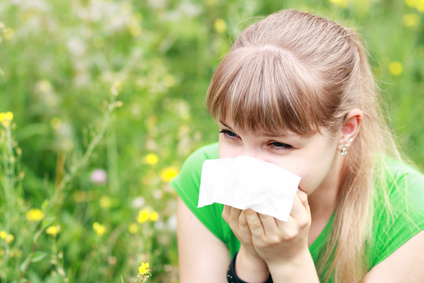- Spring is a beautiful season where flowers bloom and the weather is comfortably pleasant. It is a season that represents rebirth, life, and new beginnings.
- However, for any allergy sufferer it can be the most dreaded season of the year
- Many allergy sufferers avoid the outdoors and even reduce all activities including exercise.
- There are ways you can still exercise and enjoy the outdoors.
- Let’s look at some helpful tips to help any allergy sufferer put there:
- Cover your hair:
- Lisa Lynn, a fitness expert based in New York recommends wearing a hat so pollen doesn’t build up in your hair.
- This is even more important for those who don’t wash their hair every day. “You want to cover [your head] so you don’t get all that stuff in your hair and let it continually irritate you,” Lynn explains.
- Tips:
- 1. Wear a baseball cap or hat.
- 2. It is also recommended to wash your hair daily if you are an allergy sufferer.
- 3. Apply coconut oil on your hair before going outside, the oil will repel allergens.
- 4. Wash your hair with organic shampoo that is paraben-free and synthetic-free. It will help reduce eye itchiness.
- Apply olive oil on your ears and nostrils:
- Dip the end of a Q-tip into organic olive oil and clean your ears with it. The olive oil, will act as an allergen repellent.
- Dip the end of a Qtip into organic olive oil and apply in your nostrils.
- Drink a lot of fluids:
- Make sure you drink a lot of water before and after you go outdoors.
- Organic Green Tea is very helpful in fighting off allergy symptoms.
Fresh organic orange juice is also a favorite, as Vitamin C and bioflavonoids will reduce the inflammation. - Gargle with salt and water:
- Gargle before and after you have gone outside. It will stop the itchiness in your mouth.
- Know your allergies:
- The biggest cause of allergy symptoms is pollen in the air, which is at an all time high during spring.
- The pollen count is at its peak during the mornings, so it’s better to workout in the afternoon or evening.
- Make sure to know what you are allergic to and go see an allergist to get tested.
- According to the National Institute of Allergy and Infectious Diseases, “pollen counts tend to be the highest early in the morning on warm, dry, breezy days and the lowest during chilly, wet periods,” Lynn states.
- Tip:
- Check the weather channels and websites daily as they usually have a pollen count statistics so you know the best times to go out.
- Protect your eyes:
- 1. Moisturize your eyes by using saline eye drops just before going outside. The saline solution will reduce the itchiness and redness.
- 2. Dry eyes will attract more pollen.
- 3. Wear sport goggles or sunglasses to keep pollen from getting into your eyes.
- Take a shower:
- Showering after exercise is important for hygiene of course, but also for allergy symptoms, because it washes off the pollen that sticks to your body.
- Wash your clothes:
- 1. Wash and change your clothes daily as they may have allergens on them.
- 2. Do not bring your exercise clothes in your room.
- 3. Undress outside of your room.
- 4. Use a chemical -free laundry detergent
- Wear thin gloves.
- It will help keep your hands free of allergens.
- Note: The content on our website is for educational purposes only. Please consult your health practitioner or a qualified expert.
- For a natural prescription to alleviate seasonal allergies.
- For a potent seasonal allergy fighter tea.
- REFERENCES:
- 1. “How to Exercise Outside With Spring Allergies.” US News. U.S.News & World Report, 20 Mar. 2014. Web. 29 Mar. 2014.
- 2. “Pollen Allergy.” National Institute of Allergy and Infectious Diseases. National Institute of Allergy and Infectious Diseases, n.d. Web. 29 Mar. 2014.

















